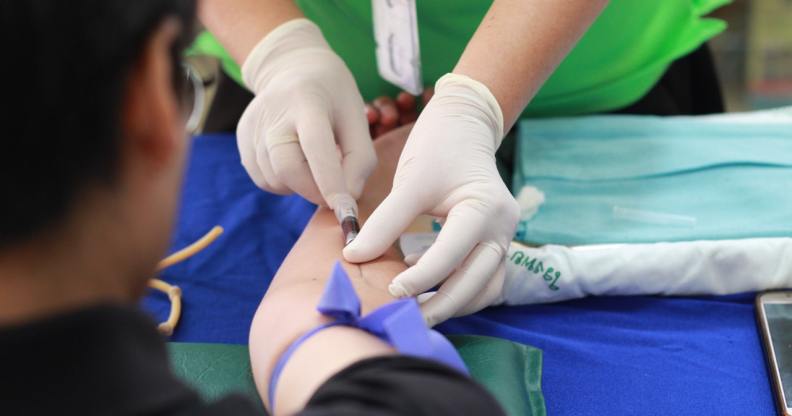Denmark to finally allow gay and bisexual men to give blood – but only after four month abstinence period

(Pexels)
Denmark has fallen in line with other countries and is set to allow gay and bisexual men to donate blood – but only if they abstain from sex for four months.
Like most countries across the world, Denmark banned gay and bisexual men from donating blood for life in the 1980s when the AIDS epidemic was at its height.
The measure was first announced in August of last year but will now be honoured by the new government, with the rule expected to come into force in March.
Minister of health Magnus Heunicke sent a letter to parliamentary committees confirming the change, DR reports.
New blood donation rules a ‘positive move’, Denmark health minister says.
“The introduction of blood donation for MSM [men who have sex with men] is a positive move. With the four-month probation period, Denmark will be among the most progressive countries in the world with regard to blood donation for MSM,” the minister writes in the parliamentary notice.
“There is no research supporting (that length of time). So we see the change as a step in the right direction but would welcome further relaxation of the rules at some point,” he added.
With the four-month probation period, Denmark will be among the most progressive countries in the world with regard to blood donation for MSM.
Meanwhile, Blood Donation in Denmark backed the change.
Reliable testing means lifetime ban is no longer considered necessary.
“A permanent ban made sense at the time in was implemented. The situation today is different, with very reliable testing.
“We have supported calls for this very strict rule to be changed without it affecting patient safety,” general secretary Flemming Bøgh-Sørensen told DR.
Denmark joins a number of other countries that have relaxed rules banning gay and bisexual men from donating blood. Many countries continue to have a lifelong ban in place, but some nations – such as the UK, the Republic of Ireland, Canada and France – have reduced the abstinence period to either a year or a number of months.
Today’s advanced blood screening technology means it is much easier to test for HIV, making bans redundant.
In addition to this, the US Blood Equality initiative says bans “reinforce negative stereotypes about gay and bisexual people – particularly that AIDS and HIV is a ‘gay disease'”.

